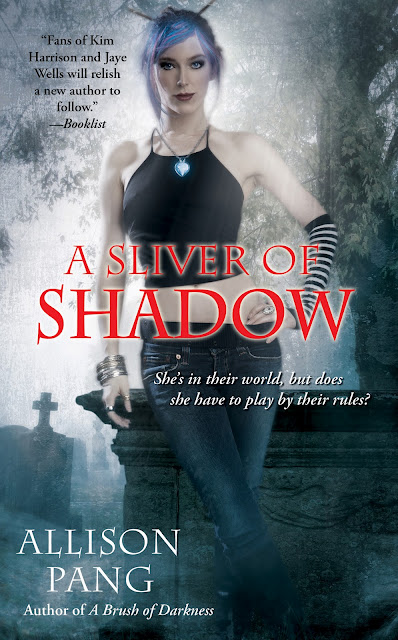
The Disadvantage of Boy and Girl Fiction
Written by: Beth Woodward, CC2K Books Editor
 Recently, urban fantasy author Allison Pang wrote a blog entry titled, “Did Buffy Destroy Urban Fantasy.” She makes the argument that before Buffy, urban fantasy was not considered a genre unto itself, but rather just a small part of the larger fantasy genre. She makes the argument that, in the post-Buffy world, urban fantasy has been pigeonholed as “female fantasy” because most of the books are written by women and feature female leading characters.
Recently, urban fantasy author Allison Pang wrote a blog entry titled, “Did Buffy Destroy Urban Fantasy.” She makes the argument that before Buffy, urban fantasy was not considered a genre unto itself, but rather just a small part of the larger fantasy genre. She makes the argument that, in the post-Buffy world, urban fantasy has been pigeonholed as “female fantasy” because most of the books are written by women and feature female leading characters.
Meanwhile, a few days ago, I read about a male author who had difficulty getting his debut novel, a romance featuring a male protagonist, published. Seems editors kept telling him that women did not read romances by, and about, males. (I bet Nicholas Sparks and Nick Hornby would be surprised to know that.)
I know I’ve written about genre bias many times before, and this is a different—and alarming—permutation: the idea of dividing fiction genres into gendered categories. In addition, this disproportionately seems to have the effect of segregating so-called “girl books.” (In fact, there’s an entire subgenre known as “women’s fiction.”)
I get that there are always going to be books that are read disproportionately by women, and books that are read disproportionately by men. That’s not what I have a problem with. But the issue is that girl books are relegated to a lower place in the fiction hierarchy. Furthermore, while it’s totally acceptable for women to read typically male fiction, but woe to the male who decides to pick up one of these girl books.
Honestly, it seems like there are only two requirements for something to be classified a girl book: a) It’s written by a female, or, b) It has a female protagonist. Which wouldn’t be so bad, except that girl books are somehow looked upon as lesser than their male-written and -dominated counterparts. As Pang puts it, “Sometimes it feels like I have to apologize for not writing a “real” book in a “real” genre. (Oh, it’s just Urban Fantasy, nothing major. Not like Game of Thrones, or anything cool like that.)”
It’s worse for romance, which is often treated like the metaphorical red-headed stepchild of the literary world. Forget the fact that romance outsells every other fiction genre. They’re just girl books, and clearly all of us girls are bubbleheads who can’t evaluate quality literature.
Why is it that we need to assign weights to genres at all? Why can’t we evaluate books on their individual merits, rather than what genre they belong to? Furthermore, why do those stereotypically girl books get assigned a lesser weight/relevance/importance than the stereotypically boy books?
I keep imagining a world in which people can read whatever they want and not be judged on it, a world in which a man can read (or write!) a romance novel and a woman can read/write a spy thriller and it’ll all be good.
I’m so tired of needing to get up on my feminist soapbox to say, “This is why we still need to work on male/female equality.” But really, this is a problem that affects both men and women. By putting ourselves into comfortable “male” and “female” boxes, we’re limiting everyone.
